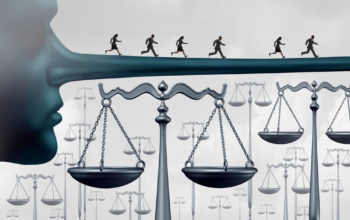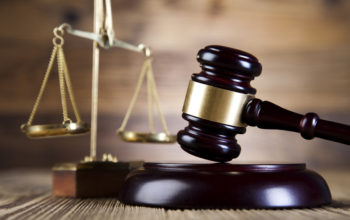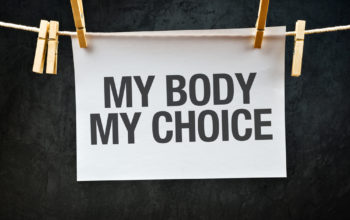In the last couple of weeks, we’ve provided some snapshots of what impact a conservative-leaning Supreme Court would have on abortion rights, gun rights, and immigration. Today we’ll be looking at another area the Court could dramatically shift: that of LGBTQ rights.
The youngest Americans have likely grown up thinking and feeling the LGBTQ community have had the same rights as everyone else, and that it’s always been that way.
Unfortunately, that is not the case. Gay citizens’ right to marry, for example, has been hotly contested for years, even after the Supreme Court ruled that it was legal. That decision, by the way, had its dissenters.
Major Players
The loudest outcry against the LGBTQ community comes from the religious right. These are the same people trumpeting, “God made Adam and Eve, not Adam and Steve.” They few homosexuality as a sin. To their eyes, giving gay couples the right to marry (and giving gay citizens the same rights as everyone else) merely legitimizes the sin and action against God.
We’re hesitant to call them a “group,” as they’re not all affiliated with each other. But those with this belief system generally gravitate toward more conservative stances and politicians, falling under the blanket of “far right” or “religious right.”
We want to be careful to note that not all religious people (and maybe not even the majority) are in favor of this. Many, many churches, temples, and religions are wonderful LGBTQ allies. But there is a very loud, and increasingly powerful religious segment who want to erode LGBTQ rights. They’re the ones we’re discussing in this segment.
So, what does a conservative Supreme Court look like for gay rights?
Religious Liberty Rights
We mentioned earlier that the religious component plays heavily into the view many conservatives take on gay rights. They have pushed back against what they see as a threat to their faith with “religious liberty rights.” Broadly speaking, religious liberty rights allow individuals (or businesses) to deny service to, or decline to hire, someone they don’t agree with on religious grounds. In this context, it’s members of the LGBTQ community; however we’ve already seen it extend to women in the birth control battle of Burwell vs. Hobby Lobby.
These religious liberty rights could be expanded by a conservative majority on the Supreme Court. This would allow private employers to discriminate against LGBTQ employees by citing “faith principles.”
A recent high-profile case, Bostock v. Clayton County, involved a transgender woman being fired after many years on the job after informing her employers she intended to transition. The Supreme Court ruled that gay and transgender individuals were, according to the Washington Post, “covered under a federal law prohibiting sex discrimination in the workplace.” The case was decided 6-3, but Justice Gorsuch indicated the vote was “narrow,” and that “How these doctrines protecting religious liberty interact with Title VII are questions for future cases too.”
There will certainly be future cases, as transgender workplace rights and bathroom rights are likely to come up again.
Gay Marriage
Future court cases could limit or overturn rulings in landmark decisions such as Obergefell v. Hodges, which established that same-sex couples enjoy the same marriage rights as different-sex couples. Only three members of the majority in that same-sex marriage ruling are still present: Justices Stephen Breyer, Sonia Sotomayor, and Elena Kagan.
The more conservative members of the court have already signaled their readiness to revisit the case, and possibly walk back the hard-won rights of the LGBTQ community. Recently the Supreme Court declined to hear Davis vs. Ermold, brought by Kentucky county clerk Kim Davis. Davis earned some notoriety by refusing to issue marriage licenses to same-sex couples, even after the 2015 Supreme Court ruling.
The court may have turned her down, but Justices Clarence Thomas and Samuel Aito wrote a rather biting dissent. Thomas stated the original ruling “enables courts and governments to brand religious adherents who believe that marriage is between one man and one woman as bigots.” The case also apparently has “ruinous consequences for religious liberty.”
This isn’t just about weddings, by the way. The NM Political Report again breaks it down: “Other benefits same-sex couples gain by marriage include being able to file taxes jointly, being legally able to hold mutual investments, a home and savings plan together and being covered on a spouse’s health insurance policy.”
Upcoming Cases
In November, the Supreme Court will rule on Fulton vs. The City of Philadelphia, which will determine whether Philadelphia can deny a Catholic foster agency contracts (and therefore use them to place children) because they do not permit same-sex couples to adopt.
Among the potential fallout? A potential eroding or overturn of Employment Division v. Smith in 1990, a case “ruled that certain laws could not be challenged through the First Amendment’s protection of the free exercise of religion.” The NM Political Report breaks it down like this: “A contractor who receives tax payer funding to provide homeless shelter services or foodbank services through a government contract could refuse to house or provide food to queer or transgender people.”
It would also open the door to allow faith-based orgs to discriminate against people of different faiths.
The ACA’s Impact on LGBTQ Lives
The American Healthcare Act (or Obamacare) matters to just about everyone, but the LGBTQ community faces some challenges if it’s struck down. First, let’s talk about how the ACA has helped them:
- State plans and employer-provided plans cannot discriminate against LGBTQ individuals
- Plans cannot charge more for preexisting conditions (such as HIV or cancer)
- Transition-related coverage is more readily available
We already know the president and the GOP have been chomping at the bit to dismantle the ACA for years. Come November, they will be closer than ever.
Amy Coney Barrett’s Stance
Amy Coney Barrett’s confirmation hearings are going on as this goes to press. We would like to give her the benefit of the doubt; however, what’s been uncovered so far is not promising. Vox details a lecture where she spoke on behalf of Obergefell dissenters (Judge Barrett shows up at 4:10). She also seems to hold religious beliefs that would, at first glance, compel her to rule against the LGBTQ community.
Judge Barrett has maintained that her personal opinions do not impact her rulings. Obviously we hope that’s the case.
In the meantime, we’ll continue to watch, and wait, and hope for a court that would rather grant rights to all instead of ripping them away.



